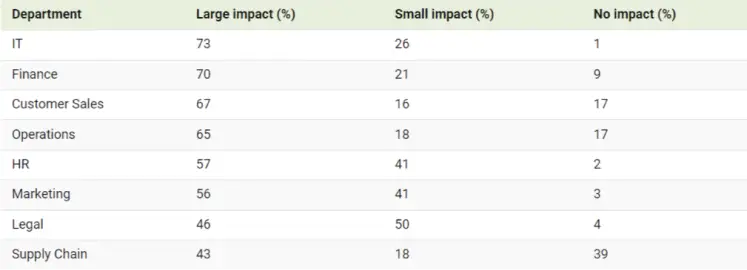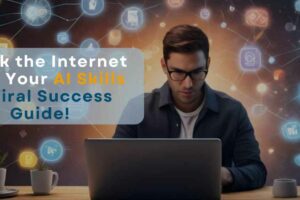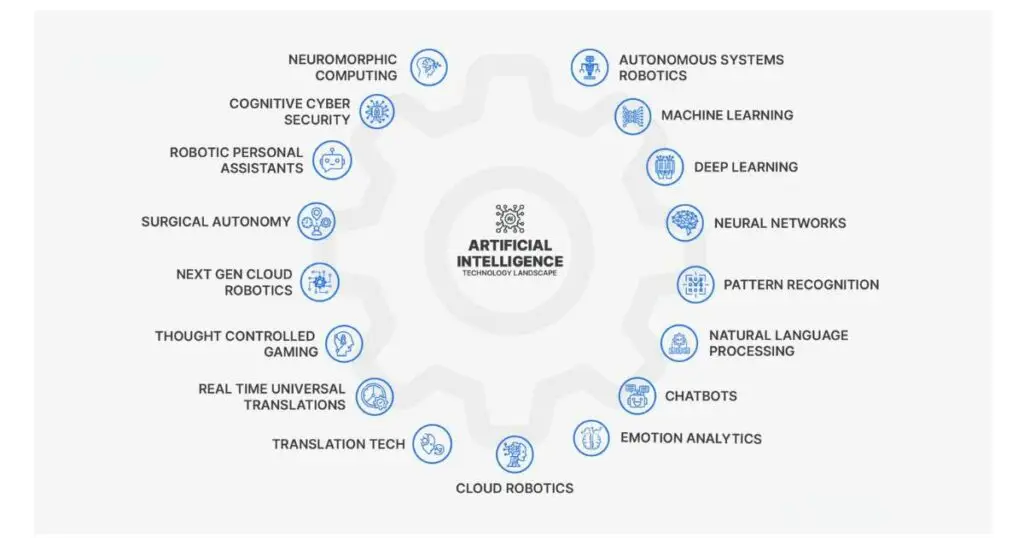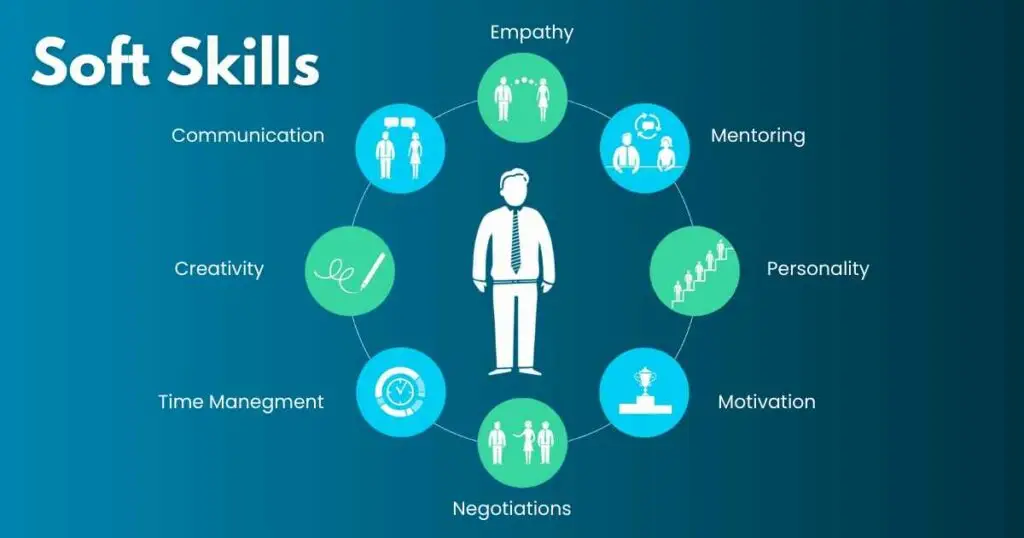
AI and Your Future: Secure A High-Paying Job
- Date July 5, 2024
How To Secure A High-Paying Job in 2024
The dawn of AI is not just upon us; it’s weaving through the very fabric of our daily lives, reshaping the landscape of the job market as we know it. Gone are the days when AI was a futuristic concept in sci-fi novels. Today, it’s a stark reality that promises a sea of opportunities for those ready to ride the wave. But with great opportunities come great challenges and Work. How do you ensure you’re not just a spectator but an active participant in this AI-led future, securing a high-paying job? Let’s dive in!
Understanding the Impact of AI on the Job Market
As AI technology continues to evolve, its impact on the job market is profound, yet double-edged. It’s a creator, a transformer, and yes, sometimes a terminator of jobs. Understanding this dynamic is your first step towards futureproofing your career.
Consequently, in a machine-to-machine employment model, low-skilled jobs will disappear in the long run, while new and unrealized job roles will emerge in the long run (Polak 2021).
Just like how a coin has two sides AI has both a destructive effect and a substitution effect on employment. As soon as machines emerged as the means of labor, they immediately began to compete with the workers themselves. As a modern new technology, artificial intelligence is essentially humanly intelligent labor that condenses complex labor. Like the disruptive general-purpose technologies of early industrialization, automation technologies such as AI offer both promise and fear regarding “machine replacement.”

Jobs That AI is Creating
Think of AI not as a job stealer but as a job creator. From AI specialists to data analysts, new roles are emerging that require a fresh set of skills. These are high-paying, future-proof jobs that are just waiting for the right talent to snatch them up.
Some of those Jobs that will be brought by the boom of AI are as Follows:
1. AI-Driven Engineer:
Experts at directing ChatGPT and other generative AI apps to produce a desired result are prompt engineers. (A prompt engineer will hone their prompts until they provide the intended outcome. For instance, a generic prompt would elicit a generic response.
2. Manager for AI Input and Output:
Consider this position to be a more strategic version of a prompt engineer, responsible for managing the data fed into generative AI systems and the results such systems produce. As businesses struggle with issues like data privacy, copyright, AI explainability, and AI bias, this will become more and more crucial.
3. AI Auditor/Reviewer of Content
For all types of material, including written pieces, graphic designs, and analytical reports, human reviewers will be required to evaluate the content’s appropriateness, correctness, and quality. Thus, even though generative AI will surely be used to produce an increasing amount of material, humans are still required to make sure that the content is appropriate for the targeted audience.
4. AI Engineer for Maintenance
AI models need maintenance, just like any other system. This includes upgrading the models, making sure the systems function well, and debugging any problems. The same applies to generative AI. Thus, the demand for maintenance Engineers will be on boom.
5. AI Security Expert
Artificial Intelligence (AI) is making cybersecurity much more complex by enabling more advanced malware, phishing assaults, and other threats. Thus, organizations will want specialists who can protect the systems from such malicious threats and make use of the AI to deal with them.
Conclusion/Final Takeaway:
Artificial Intelligence (AI) is making cybersecurity much more complex by enabling more advanced malware, phishing assaults, and other threats. Thus, organizations will want specialists who can protect the systems from such malicious threats and make use of the AI to deal with them.
Jobs That AI is Transforming
Many existing jobs are undergoing a transformation, intertwining with AI capabilities. For instance, marketers now leverage AI for customer insights, while doctors use AI for diagnostic assistance. Understanding AI can make you invaluable in your current role or open doors to new opportunities.
Knowing AI tools will greatly influence the quality of Jobs making the efficiency much better, a few examples in this domain are:
1. Computer Programmer
Programming language is more regimented and direct than human language, which demands far more originality and nuance. Since ChatGPT can already be used to develop code, programming positions at the entry level may soon become automated.
2. Analyst
AI can do, at least partly, research-centric jobs such as financial and market research analysis. Large amounts of data can be processed using machine learning, which can also identify patterns and arrange its results into clear graphics.
3. Content Creator (On Occasion)
Artificial intelligence content generators are already able to aid with repeated concept generation. Artificial intelligence can easily handle simple content marketing chores, crafting short social media posts and formulaic emails. AI may sometimes even generate a first draft of longer-form content, replacing a lot of the tasks performed by human content marketers.
4. Graphic Designer
Artificial intelligence-generated art is a direct rival to graphic designers, especially since anyone can create this type of artwork. Professional-quality photos can be easily created without artistic expertise thanks to programs like Lensa and DALL-E.
Jobs at Risk Due to AI
It’s the elephant in the room, but it’s better to confront it than to ignore it. Certain roles, especially ones involving repetitive tasks, are at high risk. But fear not, for every door that closes, several more open. It’s all about adapting and upskilling.
According to a recent Goldman Sachs estimate, AI technologies might affect 300 million full-time employments worldwide, causing significant disruption in the labor market. As firms increasingly use AI to boost productivity, certain positions become more susceptible to automation.
Fields likely to be affected are:
1. Representatives of Customer Service
The customer service sector is already feeling the effects of artificial intelligence greatly. The number of client inquiries handled by chatbots, and AI-powered assistants is rising, which reduces the demand for human representatives.
2. Both bookkeepers and data analysts
Data analysis, bookkeeping, and basic financial reporting are among the jobs that are most vulnerable to automation. These are ideal candidates for AI-driven efficiency gains because they center on routine administrative activities.
1. Coding
Understanding the language of AI is paramount. Even basic knowledge can set you apart. Providing an edge to your career.
2. Data Analysis
AI thrives on data. Being able to analyze and interpret this data is a prized skill.
3. Problem Solving
In the age of AI at work, both leaders and employees will be expected to face new challenges and solve new problems more frequently than ever before. Applying critical thinking and strategy to difficult challenges can help teams succeed.
4. Cyber Security
Technology rising gives rise to threats. Cyber security skills are critical to protect digital assets and maintain the integrity of the system. Threat detection, risk management and ethical hacking are a few of the most important skills required to become a cyber security professional.
5. Full Stack Development
The art of mastering both front-end and back-end technologies and being able to create end-to-end solutions makes you a versatile asset in the field of software development. Technologies like HTML & CSS, JavaScript for front-end and server-side languages like Node.js or Django for back-end.
Soft Skills
1. Adaptability
AI is prone to change. Being adaptable is key.
2. Continuous Learning
Learning never stops. Embrace it.
3. Communication
Effective communication across platforms is essential for connecting and developing precise cooperation.
4. Leadership Skills
Strong Leadership is the base for organizational growth and progress.
Industries on the Rise Thanks to AI:
Certain industries are booming thanks to AI, offering lucrative opportunities:
1. Healthcare
Diagnostics to robotic surgeries, AI is revolutionizing healthcare. According to a Frost & Sullivan analysis, AI leads to up to 40% increases in health outcomes. This enables the discovery and prediction of patterns and anomalies that physicians may miss, allowing for the early diagnosis of diseases such as cancer or heart disease that are difficult to detect, assisting healthcare professionals in making better judgments.
2. Finance
AI is enhancing everything from fraud detection to personalized banking. Machine learning algorithms can evaluate large amounts of financial and policy data to find trends and anomalies that may indicate fraudulent behavior.
3. Technology
Integration of AI into the IT industry has been nothing short of transformative. AI technologies are improving global efficiency and creativity by automating ordinary jobs and developing complicated algorithms that can predict consumer behaviors.
4. Human Resources
Artificial Intelligence can analyze large amounts of data, which has led to changes in the field of human resources and talent management. AI can analyze profiles of multiple candidates for a job to identify key capabilities in the selection process.
How to Prepare for a High-Paying Job in the AI Era:
So, how do you make yourself an irresistible candidate for these emerging high-paying jobs? Let’s break it down.
1. Embracing Lifelong Learning
Stay curious, stay learning. The AI field is constantly evolving, and so should you.
2. Networking and Building Professional Relationships
Your network can be your net worth. Connect with professionals in the AI arena.
3. Certifications and Courses
Consider investing in specialized courses or certifications in AI and related fields. They can significantly boost your employability.
4. Improve your Soft Skills
Develop your written and spoken word skills, particularly your ability to translate technical concepts to non-technical stakeholders and work successfully with teams and leadership if you are moving in that direction.
5. Deepen Technical Expertise
Try to grasp how processes and systems work at a level below where you are working. Consider specializing in security, performance, architecture, or any other in-demand talents.
Conclusion: The Future is AI-Driven
The AI revolution is not coming; it’s here. And it’s filled with opportunities for those willing to adapt and upskill. Whether you’re just starting out or looking to pivot in your career, the future is bright for those ready to embrace AI.
The greatest method for preparing and thriving in a probable AI future is to establish a solid foundation of technical abilities that allow you to successfully use and check the output of these tools. Simply “making it work” will not result in high-quality, professional code, and is ultimately a losing strategy. AI, or a non-technical human using AI, is unlikely to solve issues and build solutions aligning budget, time, performance, and accuracy requirements soon.
So, relax and focus on a career path that will take you to the positive side of the curve.
Frequently Asked Questions
Welcome to the FAQ section for our blog post on unlocking the secrets of Gen AI and the essential tools required for success. Here are some common questions and answers to help you grasp the essence of this transformative topic:
No, it’s never too late. The field of AI is vast and growing, opening opportunities daily. A bit of Research and any person is good to go and develop a career in AI.
While a technical background helps, many aspects of AI require skills that can be acquired through certifications and courses.
Learning never really stops, but foundational knowledge can be built within a few months of dedicated study.
AI can automate tasks but not the human creativity, empathy, and critical thinking that many jobs require.
Start with understanding the basics of AI and machine learning, coding, and data analysis. Online courses and certifications can be a good starting point. Reading articles and keeping yourself updated about recent developments in AI will also provide a great amount of help.
You may also like

AI Skills to Break the Internet: Your Guide to Going Viral!

Unveiling AI Strategies of Millionaires



